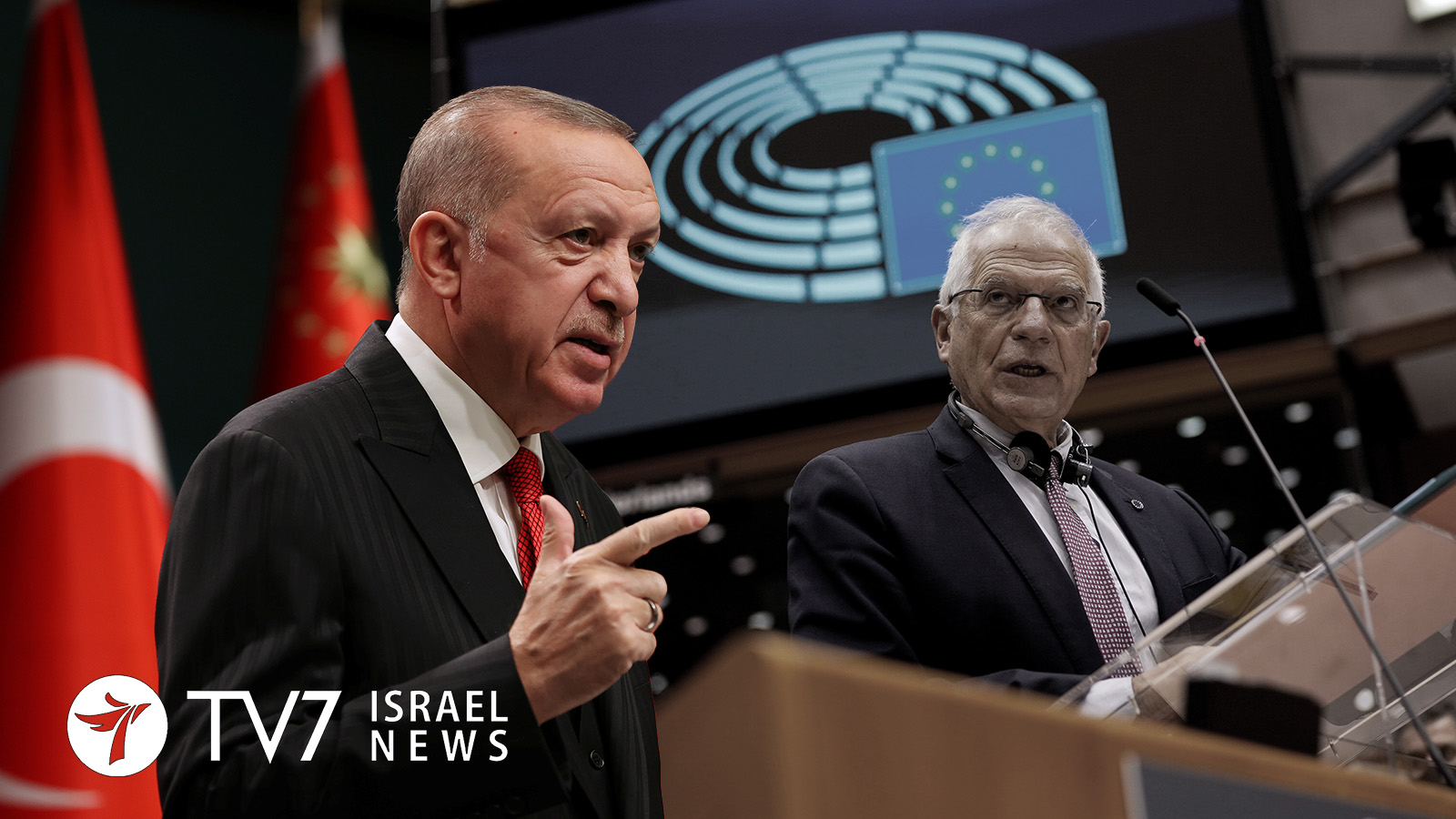Turkey’s confrontation over the Eastern Mediterranean Sea shows no sign of abating ahead of a key with the European Union leadership summit.
Turkish President Tayyip Erdoğan remained defiant over his nation’s rights to to continental shelves and potential energy resources during a video address to the Workshop on Eastern Mediterranean at Akdeniz University on Monday.
“We clearly declared that Turkey will not accept plans and maps that aim to confine country to its coasts off Antalya,” he said, stressing that, “Turkey will not bow to threats and blackmailing over the Eastern Mediterranean and will not allow any imperialist expansionism.”
Erdoğan went on to insist that his nation “will not accept plans and maps that aim to confine country to its coasts off Antalya,” and that dismissed “any plans and maps excluding Turkey from its rights on the Eastern Mediterranean” as “unacceptable.”
Reiterating his call for the convening of an international conference on the EastMed toward securing a permanent resolution of the dispute, the Turkish leader claimed his country “has never sided with tension” but “rather with peace, cooperation, fairness, and the establishment of justice,” and that “diplomacy and negotiation are the shortest and most secure way that will bring us together on a common ground.”
While asserting that Ankara is “not in pursuit of usurping anyone’s rights and law,” Erdoğan said, “We just take a stand against the pirate mentality that tries to take away our rights.”
NATO ally and EU candidate Turkey – which has the longest continental coastline in the Eastern Mediterranean – has laid claim to gas resources also contested by Greece and Cyprus; in a conflict that has fueled territorial disagreement over the divided island of Cyprus, maritime boundaries with Greece and Turkey’s broader foreign policy.
Ankara will not alter its opposition to actions by Greece and the Greek Cypriot administration since 2003, said Erdoğan. “We are following the developments very closely for both to guarantee our interests and to protect the rights of our brothers in the Turkish Republic of Northern Cyprus (TRNC),” he said, while demanding the EU maintain impartiality over Turkey’s solidarity with Turkish Cypriots.”
Meanwhile, the EU is mulling the imposition of sanctions on Turkey following increasing pressure from Greece and the Greek Cypriot administration.
Foreign Ministers from the 27 member states of the European bloc explored grounds to slap punitive measures against Turkey yesterday, ahead of their approaching 10-11 December European Council meeting.
Before the start of the meeting, Foreign Minister Heiko Maas of Germany – which currently serves the EU’s six-month presidency – said that Berlin has “made an extraordinary effort to find a way to intensify the dialogue” with Ankara in recent months, but that “regrettably, tensions between Turkey, Cyprus and Greece have not allowed direct talks to begin, and there have been far too many provocations (by Turkey).”
Tensions soared in August when Turkey – a NATO ally and candidate for EU membership – deployed the Oruç Reis research ship to map out energy-drilling prospects in waters claimed by Greece. Tempers flared again when the vessel resumed gas exploration off Cyprus in October after a temporary pause – causing EU leaders to demand that Turkey either stop its naval survey or face consequences. Return of the Oruç Reis to port once again last week was welcomed by the EU and NATO, but prompted a warning to Turkey from European Council President Charles Michel not to play “cat and mouse” by recalling the vessel immediately prior to EU summits – just to send it out again later.
“Unhappily, we haven’t seen much progress or improvement since the last European Council,” commented High Representative of the European Union Josep Borrell yesterday in reference to the 1-2 October summit, at which time Ankara was given time to find a diplomatic solution.
“We have not seen a fundamental change of direction in Turkey’s behavior. On the contrary, in several aspects the situation has worsened,” said Borrell, who chaired the meeting.
Greek Foreign Minister Nikos Dendias revealed there was consensus among his counterparts that Turkey has not deviated from its exploration in contested waters of the EastMed. “It was noted by all Foreign Ministers that Turkey didn’t get the positive message of the EU from the October council meeting,” he said, stressing that, “on the contrary, it continued its delinquent behavior – and that was within a totally unacceptable framework.”
“Threatening war against Greece if it extends its territorial waters to 12 miles the stance of Turkey is a provocation to all of the bloc,” underscored Minister Dendias.
The EU has also taken issue with Turkey’s decision to re-open part of a town in disputed territory in Cyprus, as well as supply military support to Libya in violation of a United Nations arms embargo.
